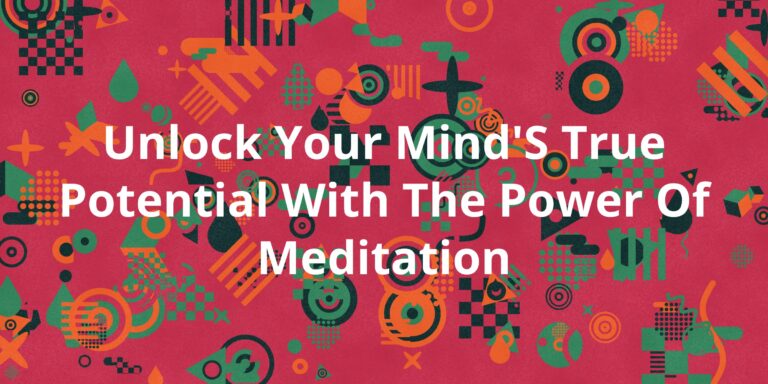Mastering mindfulness is an essential skill that can transform our lives in countless ways. Through the practice of meditation, we can cultivate greater awareness, reduce stress and anxiety, improve focus and concentration, and develop a deeper sense of inner peace and well-being. In this comprehensive guide, we will explore various mindfulness techniques that can help us master the art of meditation and unlock its transformative potential.
1. Understanding Mindfulness:
Before diving into different meditation techniques, it is essential to understand what mindfulness means. At its core, mindfulness is about being present in the moment, without judgment or distraction. It involves paying attention to our thoughts, feelings, and sensations as they arise, without getting caught up in them or trying to change them. By cultivating mindfulness, we can develop a greater sense of awareness and presence in our daily lives.
2. The Benefits of Mindfulness:
The benefits of mindfulness are numerous and varied. Some of the key benefits include:
* Reduced stress and anxiety: Mindfulness has been shown to help reduce the levels of cortisol, the stress hormone, in the body. This can lead to a reduction in feelings of tension and worry.
* Improved focus and concentration: By training our minds to stay present and focused on the task at hand, we can improve our ability to concentrate and be more productive.
* Greater emotional regulation: Mindfulness can help us develop greater awareness of our emotions, which can lead to better management of them.
* Enhanced self-awareness: Through mindfulness practice, we can gain a deeper understanding of ourselves and our thoughts and feelings, leading to greater self-awareness.
3. Different Mindfulness Techniques:
There are many different mindfulness techniques that we can use to cultivate greater awareness and presence in our lives. Some of the most popular techniques include:
* Mindful breathing: This involves focusing on the sensation of breath as it enters and leaves the body. By paying attention to the breath, we can develop a greater sense of relaxation and calmness.
* Body scan meditation: This involves systematically scanning the body for areas of tension or discomfort. By becoming aware of these areas, we can release tension and promote relaxation.
* Loving-kindness meditation: This involves cultivating feelings of love and compassion towards oneself and others. By focusing on positive thoughts and emotions, we can develop a greater sense of well-being.
* Mindful movement: This involves incorporating mindfulness into physical activities such as yoga or walking. By paying attention to the body’s movements, we can cultivate greater awareness and presence.
4. Tips for Mastering Mindfulness:
To master mindfulness, it is essential to develop a consistent practice. Here are some tips to help you get started:
* Choose a technique that resonates with you and start with just a few minutes each day.
* Find a quiet and comfortable place to meditate where you will not be disturbed.
* Set a timer and commit to practicing for a specific amount of time each day.
* Be patient and kind with yourself as you develop your mindfulness practice. It takes time and effort to cultivate greater awareness and presence.
5. Conclusion:
Mastering mindfulness is an essential skill that can transform our lives in countless ways. By incorporating mindfulness into our daily lives, we can cultivate greater awareness, reduce stress and anxiety, improve focus and concentration, and develop a deeper sense of inner peace and well-being. With consistent practice and patience, we can master the art of meditation and unlock its transformative potential.



